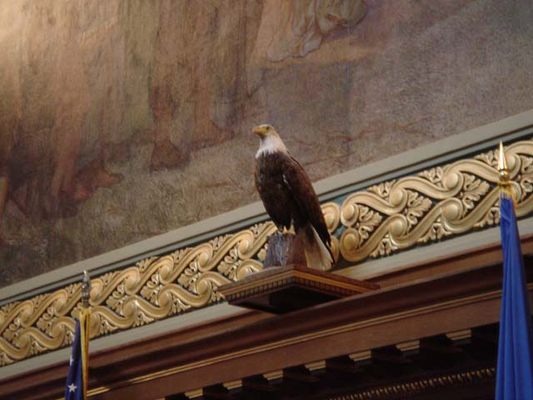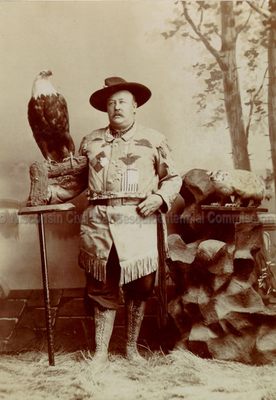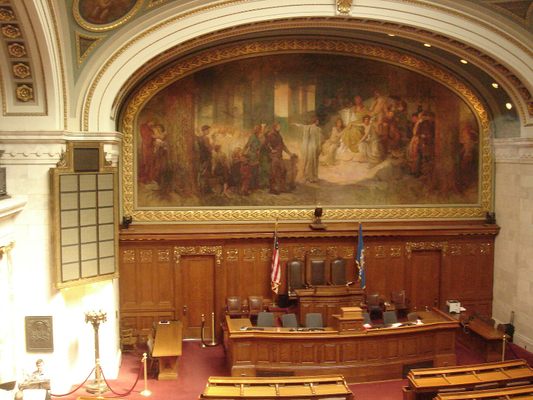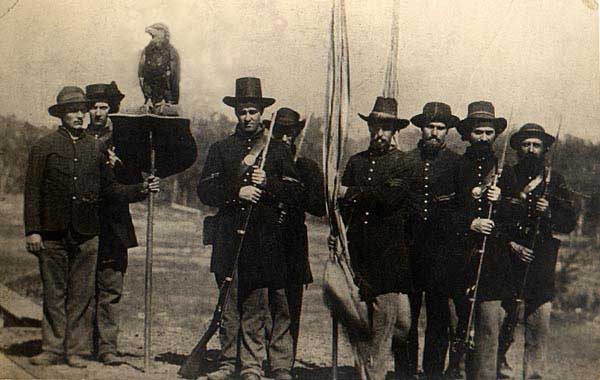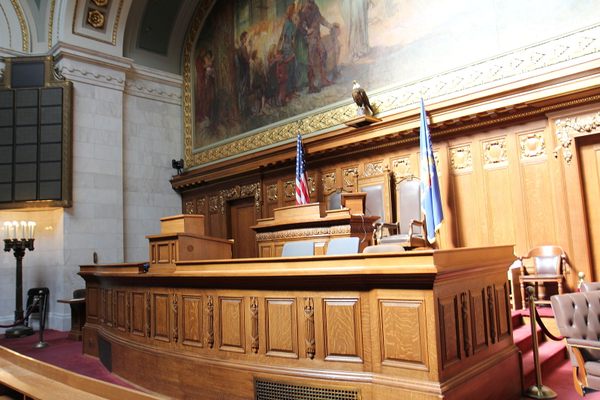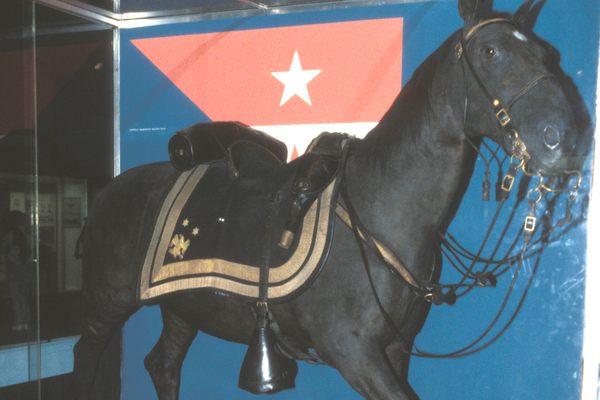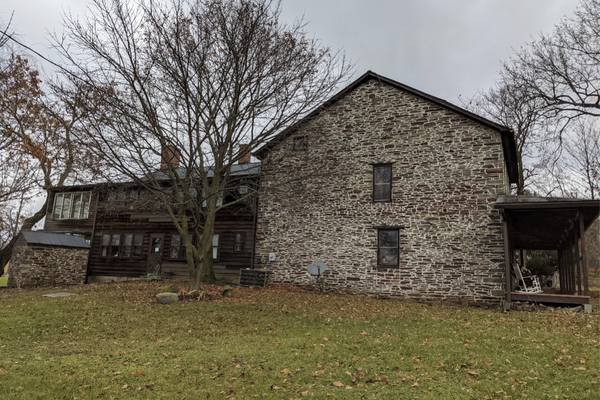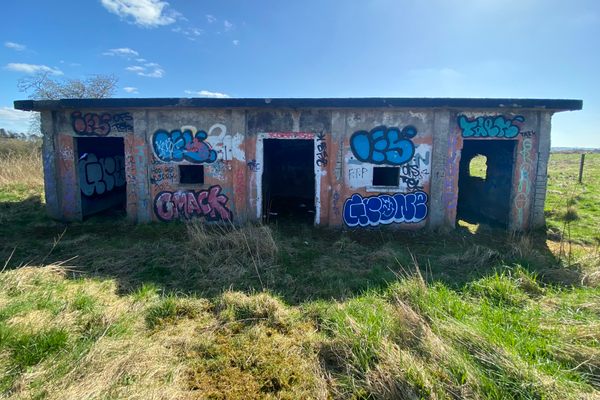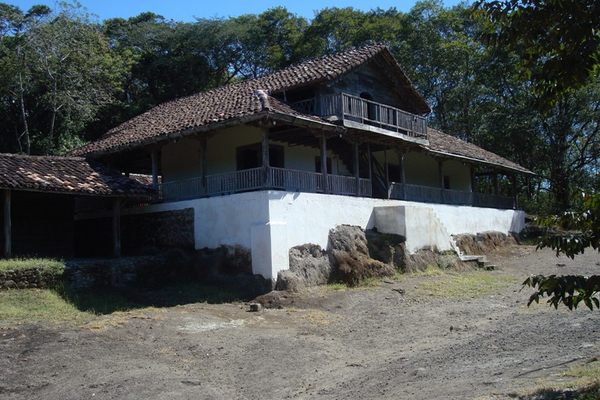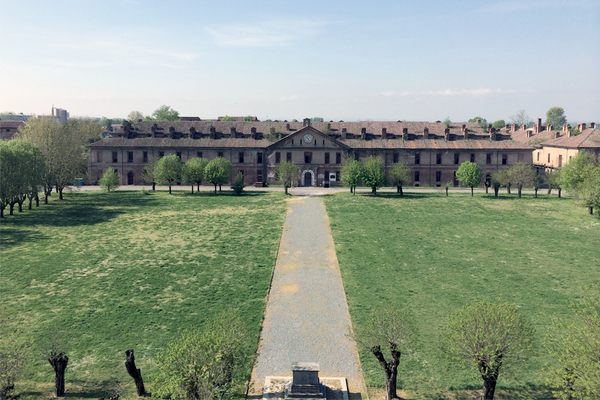About
Since 1881, a stuffed and mounted Bald eagle has been on display at the Wisconsin State Capitol in Madison, and most recently, perched above the podium of the Wisconsin State Assembly chambers.
The original mount was the earthly remains of Old Abe, an eagle who rose to prominence during the American Civil War as the mascot for the 8th Wisconsin Infantry Regiment. Old Abe was also the inspiration for the insignia of the United States Army’s 101st Airborne Division (Air Assault) and their nickname, “The Screaming Eagles.”
Old Abe’s fascinating life began in 1861, when Chippewa Chief Ahgamahwegezhig (Chief Sky) cut down a tree holding the nest of two eagle chicks. He traded the only surviving eaglet to Daniel McCann of Eau Claire, Wisconsin for a bushel of corn. Although intended as a family pet, McCann soon found the growing eagle too costly to feed and difficult to handle. He sold the eagle to Captain John Perkins of the Eau Claire Badgers militia company for $2.50. Upon entering the Civil War, the company became Company C of the 8th Wisconsin Volunteer Infantry Regiment. They renamed themselves the “Eagle Regiment.” Their unusual mascot was christened Old Abe, in honor of the 16th president.
The regiment procured a large, shield-shaped mount and perch to carry the eagle. Old Abe witnessed all of the regiment's battles. He was taken into combat with the regimental colors. Legend has that he was often released to fly screaming above battlefields, striking terror in Confederate combatants. Old Abe participated in 37 battles and skirmishes. The regiment mustered out of service in 1864. On September 26, 1864, his army comrades returned Old Abe to Wisconsin and gifted him to the people of the state.
When not touring the country, Old Abe spent his days in an aviary at the Wisconsin capitol building. He was part of the 1876 Centennial Exposition and signed autographs by pecking holes in photographs with his beak. In 1881, there was a fire in a storage room near his cage, and fumes from the fire damaged his lungs.
A month later at the age of 20, Old Abe died in his keeper’s arms. Following his death, Old Abe was taxidermied and his remains were displayed in the capitol’s Grand Army of the Republic Memorial Hall. Fire struck the capitol again in 1904, destroying the eagle and his display. To preserve his memory, Old Abe’s remains were replaced with the mounted remains of another Bald eagle, a body double who is now perched high above the Wisconsin Assembly Chambers’ floor.
The famous war eagle’s story was not without scandal. In 1889, rumors began circulating that “he” was a “she.” Lillie Devereux Blake, a prominent suffragette, alleged that Old Abe laid eggs. His taxidermist claimed that his large size was attributable to his “female” gender. Veterans were outraged, and the people of the time were horrified. The debate raged for years. A 1915 newspaper account called the allegations, “slander, base and vile.” The controversy was put to rest in 2016 when DNA testing on Old Abe’s surviving feathers determined, once and for all, that the legendary eagle was indeed male.
Related Tags
Know Before You Go
The Wisconsin Capitol Building is open Monday - Friday: 8 a.m. - 6 p.m. and Weekends and Holidays: 8 a.m. - 4 p.m.
Published
August 19, 2020
